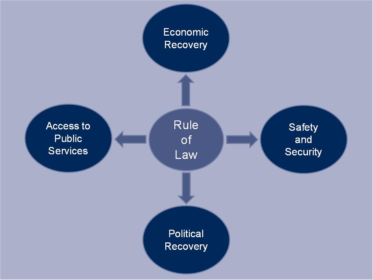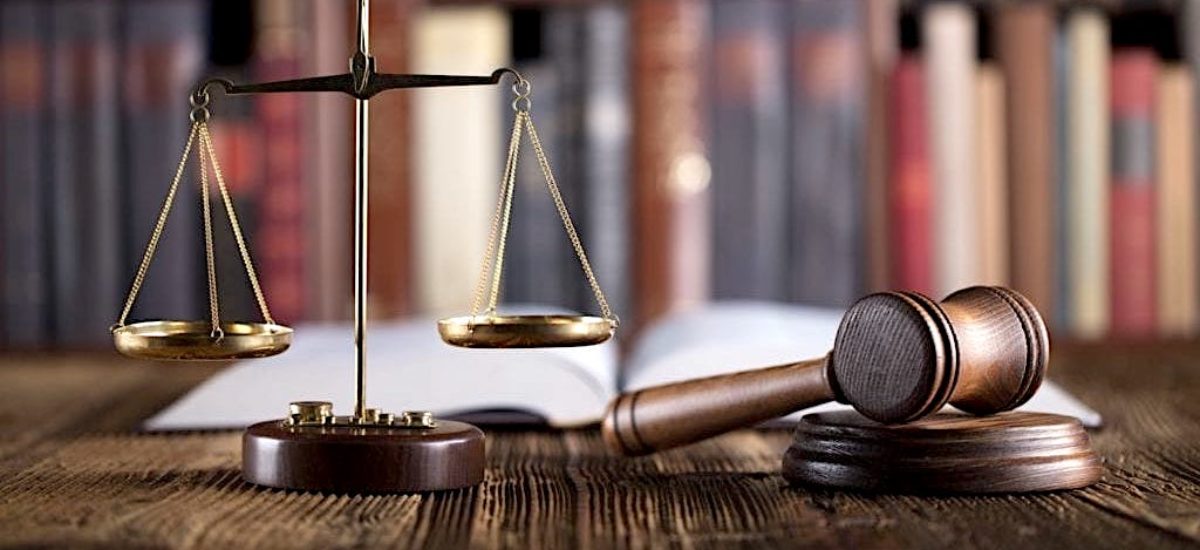Photo courtesy of Van Norman Law
The rule of law is a complex and critical principle of governance. The late Thomas Bingham, a Supreme Court Judge in the United Kingdom, wrote a prominent book on the rule of law. In this book, Bingham clearly and concisely unpacks this elusive concept that has over time become a stock phrase in the legal profession. In this seminal work, Bingham sets out eight principles which constitute the rule of law.
- Law should be accessible, clear and predictable.
- Questions of legal right and liability should be decided by application of law.
- The law of the land should apply equally to all, except when objective difference requires objective differentiation.
- Public officials should exercise their powers in good faith, and not exceed their powers.
- The law must protect fundamental rights.
- A method should be provided at reasonable cost to resolve civil disputes.
- Adjudicative powers must be provided by the state and should be fair.
- The rule of law requires the state to comply with its international obligations under international law.

This article examines three events/processes in Sri Lanka that violated the rule of law. It argues that rule of law enforcement is weak and a combination of legal reforms, potentially driven by civil society activism, is needed to put the country on a different trajectory where the rule of law is concerned.
Incident 1: Impeachment of Chief Justice Shirani Bandaranayake
Shirani Bandaranayake, the 43rd Chief Justice, was impeached by parliament and removed from office in January 2013. Ms. Bandaranayake was accused of a number of charges, including financial impropriety and interfering in legal cases. The accused denied all allegations. The impeachment followed a series of rulings against the government by the Supreme Court, including opposing the Divineguma Bill. The Bill had been tabled in 2012. Ms. Bandaranayake was replaced as Chief Justice by former Attorney General Mohan Peiris. Her controversial impeachment also drew much criticism and concern from within and outside Sri Lanka. The impeachment of the 43rd Chief Justice is a clear example of violation of the core principles of the rule of law. The impeachment was followed without respect for fairness, transparency or due process. It is indicative of a political system not committed to basic rule of law principles and it undermines public trust in the judiciary, the legal system, and basic principles of fairness, decency and good treatment.
Incident 2: Attacks against journalists and the free media
There has been a persistent culture of persecution of journalists and free media in this country. This culture of impunity violates the rule of law. The high profile assassination of senior journalist Lasantha Wickrematunge in January 2009 was highly controversial and associated by many with a crackdown on free media around the time. Mr. Wickrematunge was the founder of the Sunday Leader and the Leader publications and was known for taking “governments of all hues to task”.
Mr. Wickrematunge’s assassination caused a national frenzy and an international reaction as well, as he was amongst the country’s high profile media figures. The assassination raised serious questions about accountability, rule of law and freedom of expression. Ceylon Today described the assassination as the biggest blow to media freedom in Sri Lanka and the Editors Guild held the government responsible for the killing for failing to stop attacks against media personnel. There were other attacks against journalists such as the disappearance of Prageeth Eknaligoda and the imprisonment and persecution of journalists under the draconian Prevention of Terrorism Act. These incidents are indicative of a breakdown in rule of law and a general lack of respect for equality before the law, legal certainty and due process.
Incident 3: Authoritarian legislation
Sri Lanka has been plagued by the introduction of authoritarian legislation that violates the rule of law. The 18th amendment to the Constitution in 2010 was arguably the most important piece of legislation in this respect. The amendment made a mockery of the rule of law. Among the key components of the amendment is the ability of the president to indefinitely seek re-election. The 10 member Constitutional Council has been replaced by a five member Parliamentary Council. Independent commissions were brought under the authority of the president. Some of the powers conferred by the 18th amendment were significantly diluted when the 19th amendment to the constitution came into force in 2015. The 19th amendment restores many of the provisions of the 17th amendment to the constitution, such as enabling the Constitutional Council to set up independent commissions. Notwithstanding the 17th and 19th amendments there is a history of governments bringing in authoritarian pieces of legislation which undermine legal certainty, fairness, and justice, and more broadly the eight principles comprising the rule of law.
Conclusion
The state of the rule of law is very bleak. The three incidents are indicative of a breakdown in the rule of law and rule of law mechanisms. Ultimately, establishing respect for the rule of law requires civic engagement, a strong and fair government, a robust judiciary and a commitment from the political leadership and public officials to implement and strictly follow the basic principles of the rule of law.
The writer can be contacted at [email protected]


